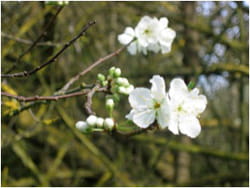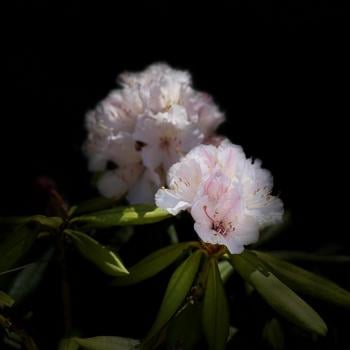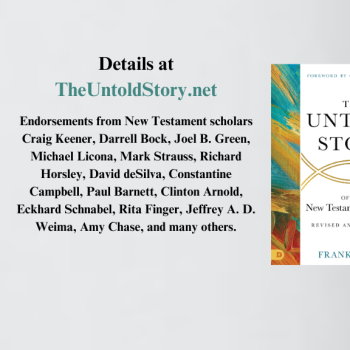 Over the past year, several of my friends have been diagnosed with life-threatening cancers. One of my closest friends, with whom I have journeyed and grown for more than forty years, died last month of a brain cancer. This year, I don't need anyone to remind me of the fragility and uncertainty of life.
Over the past year, several of my friends have been diagnosed with life-threatening cancers. One of my closest friends, with whom I have journeyed and grown for more than forty years, died last month of a brain cancer. This year, I don't need anyone to remind me of the fragility and uncertainty of life.
Traditional Ash Wednesday liturgies focus on the brevity of life and remind worshippers that they came from dust and will soon enough return back to the earth, dust once more. For our parents in the faith, Lent was a morose season in which they gave up something in order to prepare themselves for eternal life. The salvation promised and hoped for required turning our backs on the joys of embodiment and the beauties of the earth. Faithful Christians trained their eyes on heaven, forsaking time for eternity. Yes, life is serious and risky business, and no one gets out alive. But is salvation about escaping this world of perpetual perishing or seeing everlasting beauty in each passing moment?
For years, I struggled with Ash Wednesday services precisely because of their otherworldliness and asceticism. My self-denial in Lent was typically half-hearted and short-lived. These days, I am reconsidering the meaning of Ash Wednesday. The brevity and uncertainty of life now invites me to praise, wonder, and beauty, and to seize the moment—for this is the day God has made and I will rejoice in it! All that I love and care for is mortal and transitory, but mortality is the inspiration to celebration and love. Plato once described time as the moving image of eternity. We are constantly dying, but we are also constantly living as we reflect God's vision in the world of the flesh. This day, this moment, is a "thin place," for God is with us, revealed in flesh, blood, and healing touch.
This Ash Wednesday, I'm letting go of everything that keeps me from rejoicing in the passing beauty of the earth. Yes, we are dust, but we are earthly dust, springing forth from a multi-billion-year holy adventure. Dust is good, after all; it is the place of fecundity, of moist dark soil, and perhaps we are "star-dust," as Rex Hunt suggests, emerging from God's intergalactic creativity. We are frail, but we are also part of a holy adventure reflecting God's love over billions of years and in billions of galaxies.
How can we not rejoice in the color purple or pause in wonder at a baby's birth? How can we be oblivious to what Gerard Manley Hopkins calls the "dearest freshness deep down things"? Like Jacob, Ash Wednesday causes us to pause, notice, wake up, and discover that "God is in this place" and now we know it! With author Patricia Adams Farmer (in Embracing a Beautiful God), Ash Wednesday invites us to take a "beauty break," open to the awe-filled, precarious world in which we live.
So this Ash Wednesday, I plan on considering the lilies and the birds of the air. My wife and I have plans to go to a spa for a massage. I will no doubt share in the Liturgy of Ashes later in the day, but not the ashes of world-denial or bodily-mortification. The ashes I'll accept will be the ashes of transformation, of awakening to beauty and love, of seizing the moment.
In some liturgies, the imposition of ashes is accompanied by the words, "repent and believe the gospel." And that I plan to do this year. I plan to "repent," turn around, live more in the moment, appreciating God's grandeur, and believing the good news—the embodied, yet ever-lasting, gospel of beauty, wonder, and grace—the good news of walking with beauty all around me.
3/3/2011 5:00:00 AM





